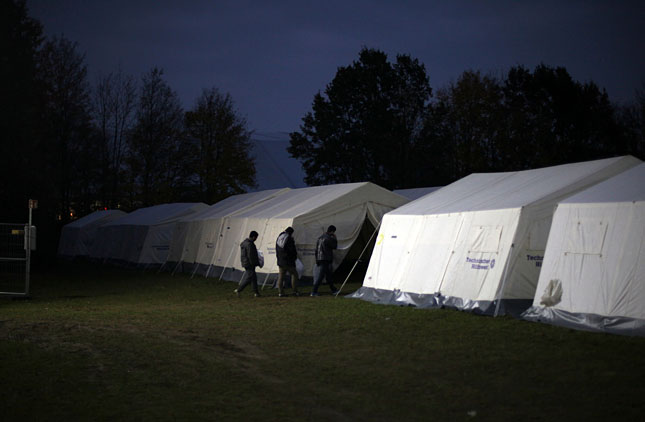-
Priyali Sur, Foreign Policy
South Asian Environmental Migrants Pushed to Back of Line in Refugee Flood
November 26, 2015 By Wilson Center Staff
The dark eyes and hair of the Pakistanis, Bangladeshis, and Afghans almost blend with the other migrants’. The brown skin tones are also not giveaways, but ask them where they come from, and you notice the hesitation – trying hard to blend into the crowd of Syrian migrants at Europe’s border crossings, afraid of being spotted and sent back.
“When they find out about our nationality, we are pushed back in the line. The others get priority to board the buses. I have been waiting here at the railway tracks for two nights now. I hope I can board the bus for Hungary tomorrow,” Abbas, a 32-year-old Bangladeshi, told me in Tovarnik, Croatia. Abbas is not alone in trying to navigate the challenging politics of Europe’s refugee and migration crisis. More than 6,000 Bangladeshis were intercepted at the border crossing points of European Union member states between January and July 2015, according to data from Frontex, the European Union’s external border management agency. (Afghans and Pakistanis make up 11 percent and 1.8 percent of migrants intercepted in Europe respectively.)
Abbas falls on the wrong side of the line drawn between refugees fleeing political oppression and migrants seeking better opportunities. Many European governments – who are worried about this huge influx of non-Syrians – are drawing distinct lines between the two. And the distinction matters greatly. Unlike refugees who generally have access to faster entry mechanisms and social benefits, migrants are dealt with under states’ typically slower and restrictive immigration laws and procedures. Germany’s interior minister, Thomas de Maiziere, called the migration of people from relatively safer places “unacceptable” and has warned that most Afghans would be deported.
Continue reading on Foreign Policy.
Sources: Deutsche Welle, Foreign Policy.
Photo Credit: A German Red Cross waiting area in Feldkirchen, courtesy of the International Federation of the Red Cross and Red Crescent Society.
Topics: Afghanistan, Asia, Bangladesh, climate change, demography, environment, Europe, European Union, Germany, Greece, human rights, humanitarian, Middle East, migration, Pakistan, population, poverty, security, South Asia, Syria, UN
 A Publication of the Stimson Center.
A Publication of the Stimson Center.



